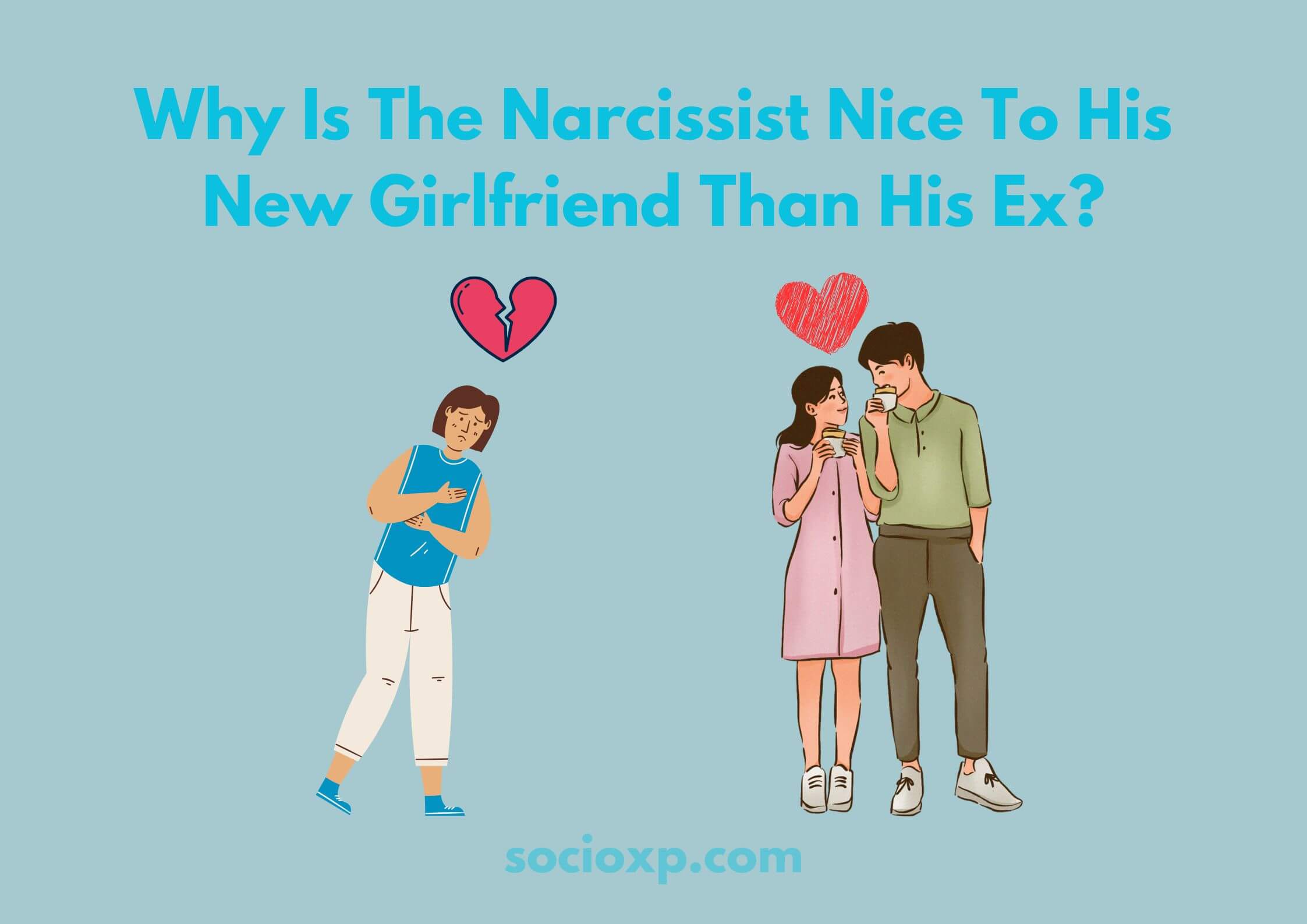Narcissist And Hoarding: Are Hoarders Actually Narcissists? (Understanding the Connection)
Narcissist And Hoarding: Are Hoarders Actually Narcissists? What is the actual connection between narcissists and hoarding? According to mental health experts, hoarding disorder and narcissistic personality disorder are two distinct conditions. So knowing elaborately about both of these may actually help. So let us know further about both these conditions and then try to understand and get answers for “Narcissist And Hoarding: Are Hoarders Actually Narcissists?”.

What is hoarding and Hoarding Disorder?
Hoarding is an act of gathering possessions regardless of their utility. In simple words hoarding is a disability of discarding things, possessions, and belongings be they useful or useless. Hoarding is a disorder that is characterized by a persistent struggle to discard or part ways with possessions, belongings, or things. Such behavior comes under a hoarding disorder and hoarders hoard possessions regardless of their actual value, meaning they can not let go of things, memories, or value connected to them regardless of how useful or useless it has become in the present scenario.
People with hoarding disorder may accumulate and store items to an extent where it becomes an obsessive-compulsive disorder and it starts hindering or interfering with daily routine functioning, causing the mess, cluttering spaces, and sometimes even an untidy environment. Not only it hinders physical lifestyle, but it also disturbs and provides mental stress, as clutter brings clutter-related stress, because hoarding possessions comes with a price and that is messy, unclean, not-so-good-looking living spaces. Neat and tidy spaces may also bring peace, calm, and order in life, while cluttery spaces bring a feeling of suffocation, untidiness, and chaos to life. Thus to maintain a balance, people need clean and neat places to function smoothly.
Hoarding is also accompanied by heightened anxiety about losing items, making incorrect decisions regarding what to keep and what to discard, constant stress to make more space to store more things, and difficulty to regulate balance as the accumulation of large amounts of things and possessions results in a cluttered space at home. Also, hoarding can have some serious consequences on one’s health, safety, and quality of life and also regulate some peace that comes with cleanliness.
Signs and symptoms of a Hoarding Disorder
- Cluttered or packed spaces or rooms can prevent a person from fully using those spaces.
- Feeling overwhelmed or embarrassed by the amount of clutter in the place.
- Avoiding visitors or feeling ashamed around them because of the clutter.
- Persistent difficulty in discarding or parting ways with possessions, regardless of their actual value, due to a strong need to save them.
- Difficulty in making decisions regarding the use or discard of things.
- Anxiety, stress, or distress when thinking or doing anything related to discarding possessions.
- Greater and abnormal levels of emotional attachment to possessions.
- Keeping things that are no longer in utilization even if it is broken.
- Accumulating a large number of items that clutter living spaces and interfere with their intended use.
- A constant fear of losing or misplacing belongings.
- Feeling enraged, hateful, and spiteful when others try to discard things.
- Always living in untidy spaces and losing important things among the useless clutter of unimportant things.
Why do hoarders hoard possessions?
Hoarding is considered to be a complex condition that manifolds with time, that often involves a combination of emotional, environmental, physical, and cognitive factors. There are a few reasons as to why people hoard things and why they are unable to let go of possessions, feelings, and the whole trauma of letting go. Let us get to know the reasons for hoarders hoard things,
- Some people tend to hoard because they have a deep-rooted sense of control and security, which they achieve by keeping things.
- Some people hoard things because they cannot detach from their possessions as they have sentimental values attached to them.
- Some people hoard things as a part of their coping mechanisms for past trauma or any loss.
- Some people also have hoarding disorder as a genetic propensity and thus are wired that way to hoard things and cannot let go of any possessions.
- Some people might hoard due to an underlying mental health issue such as anxiety, depression, or OCD (Obsessive Compulsive Disorder).

Causes of Hoarding Disorder
Genetics and Biology – A person’s genetics and brain chemistry may contribute to the development of hoarding disorder.
Chronic pain or physical disabilities – Individuals who experience significant physical discomfort or have physical disabilities may find it difficult to perform regular tasks efficiently and may tend to hoard things rather than discard them.
Mental Health Conditions – Hoarding Disorder often co-occurs with other mental health conditions like anxiety, depression, or OCD (Obsessive Compulsive Disorder).
Traumatic Events – People who have experienced traumatic events such as the loss of someone, may hoard their belongings as a way to keep them living in their memories and also to cope with the trauma of losing someone dear.
Lack of organizational skills – People with a lack of organizational skills often struggle with keeping things tidy and thus may often pile up things as is without discarding anything much.
Environmental Factors – An individual’s upbringing, living conditions, social and cultural background, life experiences, and many more such factors can contribute to the development of hoarding disorder.
What are the downsides of a Hoarding Disorder?
There are various downsides to hoarding that may be injurious to health, and some may even be toxic, so let us know below the downsides of hoarding disorder. A Hoarding Disorder may lead to;
- Health Hazards – Hoarding may become a breeding ground for various health hazards such as dust, mold, and allergens. They can also attract pests like rodents, cockroaches, and insects which can create unhealthy living conditions for the people residing there.
- Financial Burden – Hoarding can also lead to a financial burden as people may spend excessive money on acquiring and storing items. In some cases, a hoarding Disorder may also lead to bankruptcy or eviction of property or any sort of adverse financial issues.
- Relationship Strain – Hoarding can cause a strain on relationships as family and friends become frustrated with the clutter, untidiness, odor, and children’s safety issues.
- Psychological Distress – Hoarding might also be a sign of an underlying mental health issue such as anxiety, depression, or OCD (Obsessive Compulsive Disorder).
- Fire Hazards – Hoarded possessions can obstruct exist sometimes which can create fire hazards by blocking exits, doorways, windows, or vents.
Understanding Narcissism and Narcissists
Characterized by a grandiose sense of self-importance, a need for admiration, and a lack of empathy, narcissism is a personality disorder that affects approximately 1% of the population. Narcissists are often difficult to deal with because they have an inflated sense of self-worth that permeates every aspect of their lives. They may feel entitled, arrogant, and self-centered, and their behavior can be highly unpredictable, causing chaos and dysfunction in personal and professional relationships.
Narcissistic Personality Disorder is a mental health condition, where the patient has extremely high admiration for themselves, including boosted self-esteem, self-centeredness, high self-worth, boosted ego, and a low tolerance for criticism, emotions, and attachments.
Narcissistic Personality Disorder is characterized by a lack of empathy for others, a grandiose sense of self-importance, and an immoderate need for admiration. Narcissists often believe that they are entitled to special treatment, and they tend to exploit others to fulfill their needs. The disorder typically develops in early adulthood and can persist throughout a person’s life. While Narcissistic Personality Disorder (NPD) is notoriously difficult to treat, it is essential to address the disorder as early as possible to prevent those affected from inflicting emotional harm on themselves and others.

It is a mental health condition that is characterized by an extensive pattern of grandiosity, a constant need for validation, admiration, and appreciation, and a lack of consideration. People suffering from Narcissistic Personality Disorder have a boosted self-importance, ego, and an urge to constantly exploit for their own good.
Symptoms or Signs of Narcissistic Personality Disorder
These traits may differ from one individual to another, but these are some of the generalized behavioral patterns that can be commonly associated with almost many narcissists in general,
Self-Centeredness – Narcissists often prioritize their interests, needs, and benefits above others.
Manipulativeness – Narcissists can be skilled at manipulating others to what they want.
Lack of Empathy – Narcissists may have difficulty understanding or caring about the feelings of others.
Grandiosity – Narcissists often have an inflated sense of self-importance and may exaggerate their accomplishments or talents.
Lack of Accountability – Narcissists may resist taking responsibility for their actions which may be an impediment to others, yet they would blame someone else for their mistakes and never take accountability for their actions.
Need for Admiration – Narcissists always yearn for constant praise, admiration, attention, and appreciation.
Entitlement – Narcissists believe that they are entitled to special treatment and privileges.
Arrogance – Narcissists have a haughty attitude and a belief that they are superior to others.
Exploitative Behavior – Narcicits do not think twice before manipulating someone and use them for their own gain.
Envy – Narcissists may become envious of other people’s success, wealth, or qualities/talents.
Individuals with Narcissistic Personality Disorder also tend to have difficulty handling criticism or feedback that well as they consider feedback or criticisms as opposing their perceptions. Pointing fingers at a narcissist or blaming them might give rise to their anger, resentment, intense desire for retaliation, or blame shifting.

Behavioral Traits of Narcissists
Some behavioral traits of narcissists are as follows,
- They use manipulation in all situations where they feel they are losing the grip
- They always see the negatives first
- They are selfish and inconsiderate
- Narcissists lack sensitivity and empathy.
- Have uncommon expectations and unusual fantasies
- You are always the wrongdoer and not them in their eyes
- They are almost incapable of praising others or giving enough credit to others
- They act over dramatically over trivial matters
- There is no winning against them in an argument
- They are highly competitive even with someone who is incomparable
- They cheat innumerable
- Have unhealthy relationships.
- Have regular mood swings.
- They use bygone grudges as their trump card
- They never provide straight answers
Causes of Narcissistic Personality Disorder
There are a few factors that contribute to developing this mental health disorder which include genetic, environmental, and psychological factors.
Genetic Factors – Narcissism has a genetic component that runs in families. It is like a legacy that is passed down in families. People with a family history of Narcissistic Disorder are more likely to develop this disorder.
Cultural and societal Factors – Certain cultures and societal factors promote such traits and behavioral styles among the dominant gender or some pre-dominant notions of society. This can lead to people following such rigid and unhealthy norms of society.
Childhood Experiences – Traumatic childhood experiences, such as abuse, manipulation, or neglect can contribute to the development of NPD.
Parenting Styles – An overly controlling, aggressive, or abusive parenting style can lead to the development of narcissistic traits in children.
Narcissist And Hoarding: Are Hoarders Actually Narcissists? (Understanding the Connection)
Narcissistic Personality DIorder and Hoarding Disorder are two complex mental illnesses that are directly related to mental health deterioration. Both of these mental health disorders have some common traits though they cannot be termed the same. There is often a dilemma regarding, narcissism and hoarding disorder. People often get confused about whether they are similar, whether hoarders or narcissists, or whether narcissists are hoarders.

While there can be no such sign or direct link that can interrelate or connect hoarding disorder and narcissism, many mental health experts have suggested that individuals who hoard may exhibit some narcissistic traits. According to a few psychology experts, hoarding behavior may be linked to some personality disorders, including narcissism. Hoarding may act as an individual’s need to control everything around them. Some similarities between hoarders and narcissists are mentioned below,
1. Control (It is the key factor for both hoarders and narcissists)
According to a few psychology experts, hoarding behavior may be linked to some personality disorders, including narcissism. Hoarding may act as an individual’s need to control everything around them. Haoders try to control their possessions and also the living conditions and force others to live in the same unhealthy living conditions as well.
Narcissists use manipulation and abusive tactics with almost everyone to maintain control of their own lives.
2. Sense of self-importance (Which is common for both hoarders and narcissists)
People with hoarding disorder may have a strong sense of self-importance that leads them to keep objects that they perceive as valuable or essential. This sense of entitlement causes them to believe that they have a right to keep these objects and that they are essential to their happiness.
Narcissists may feel more entitled as they create more chances or opportunities to accumulate resources, achievements, and accolades that reinforce their sense of superiority and entitlement.
3. Feeling of being powerful (Which is common for both hoarders and narcissists)
Sometimes hoarders may use their possessions as symbols of personal success or achievement which can lead them on an ego trip. This behavior becomes more apparent as they feel the need to show off their never-ending collection of possessions making themselves feel powerful and superior to others.
According to a narcissist, power is about being in control of everything and everyone around them. They use power to exaggerate their self-importance, manipulate and exploit others, obtain admiration, and maintain superiority over others. Narcissists thrive on being in positions of power and authority and use it as a tool to boost their ego and feed their sense of entitlement. For them, power is not taking responsibility or working for the purpose of serving others, but it is merely about gaining control and dominating others.
4. The sense of entitlement (Which is common for both hoarders and narcissists)
Hoarders often do not express their gratitude when someone tries to help them in cleaning up spaces or organize their mess. They often do not perceive someone else’s help as help but rather would perceive it as a duty that they have for the hoarder.
Narcissists believe that they are always entitled to special treatment and privileges from others regardless of gratitude or thank yous.

Are Hoarders Actually Narcissists? (Understanding the Connection)
The relationship between hoarding disorder and narcissistic personality disorder goes way beyond just the accumulation of things or possessions. Many researchers and mental health experts have found that individuals with both disorders often have difficulties with impulse control, decision-making, and regulating emotions. They both are prone to risk-taking and both are intolerant to criticism.
However, it is necessary to note that not all hoarders are narcissists, and not all narcissists are hoarders. Understanding the underlying factors that contribute to these disorders is crucial in helping to minimize their negative impacts. Also, an argument can be presented that in many cases, compulsive hoarding is an attempt to reduce some specific anxieties which are also experienced and is also similar to a person with narcissistic personality disorder.
Inference
While hoarding disorder and narcissistic personality disorder are two different mental illnesses, there is a partial overlap between them regarding the symptoms which are clearly visible. Hoarders may show signs of having narcissistic tendencies, but that does not mean that they have a narcissistic personality disorder. The two disorders have some common traits though, which can make it a little difficult to separate the similarities and also identify the similarities. But in both disorders, seeking professional help to identify the causes and receiving treatment becomes a crucial step.
- Can a Narcissist Trick a Therapist? - May 1, 2025
- How to Beat a Narcissist? – 11 Ways to Deal with Them - May 1, 2025
- How To Protect A Child From A Narcissistic Father? – 10 Ways - April 30, 2025


